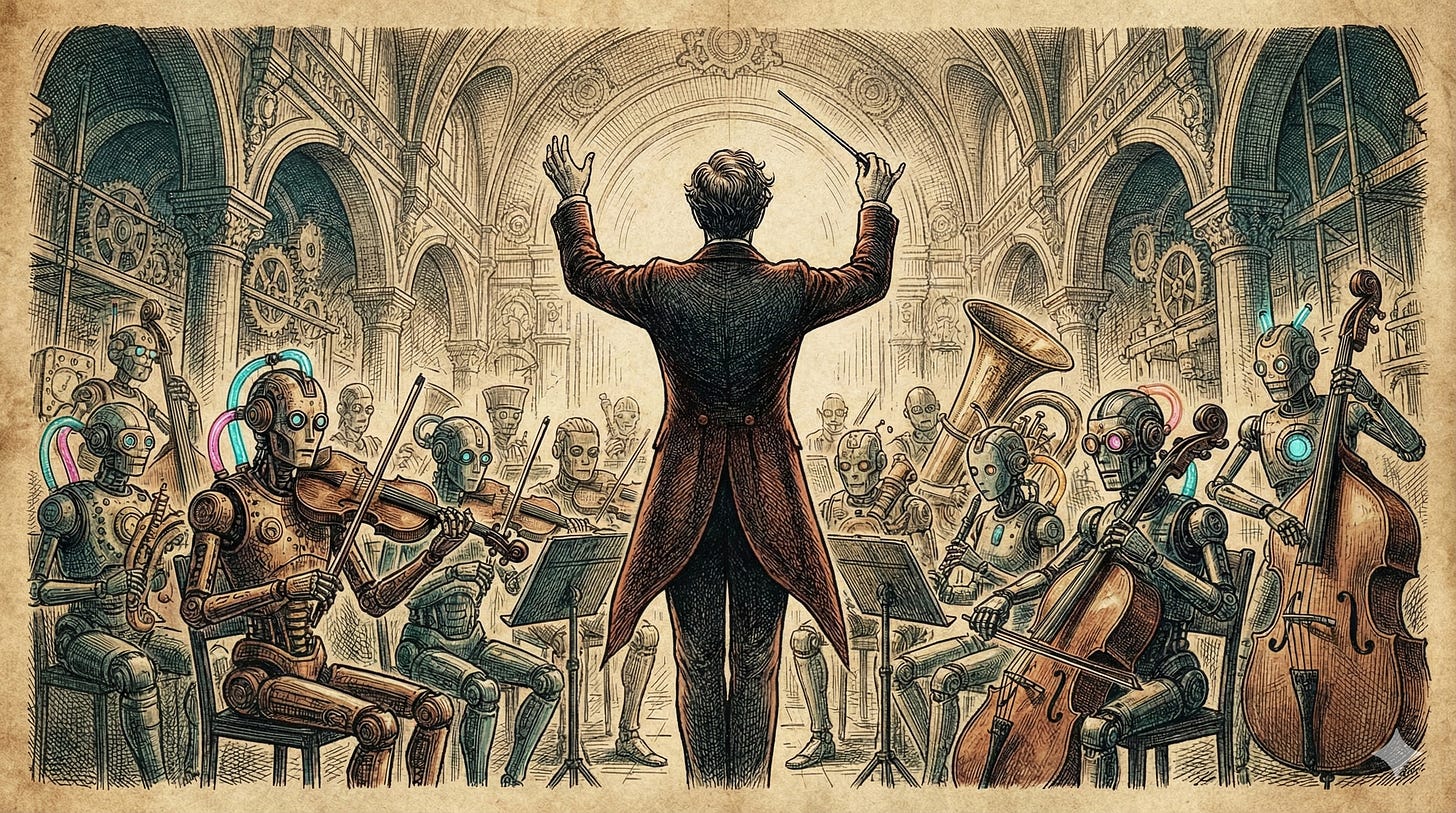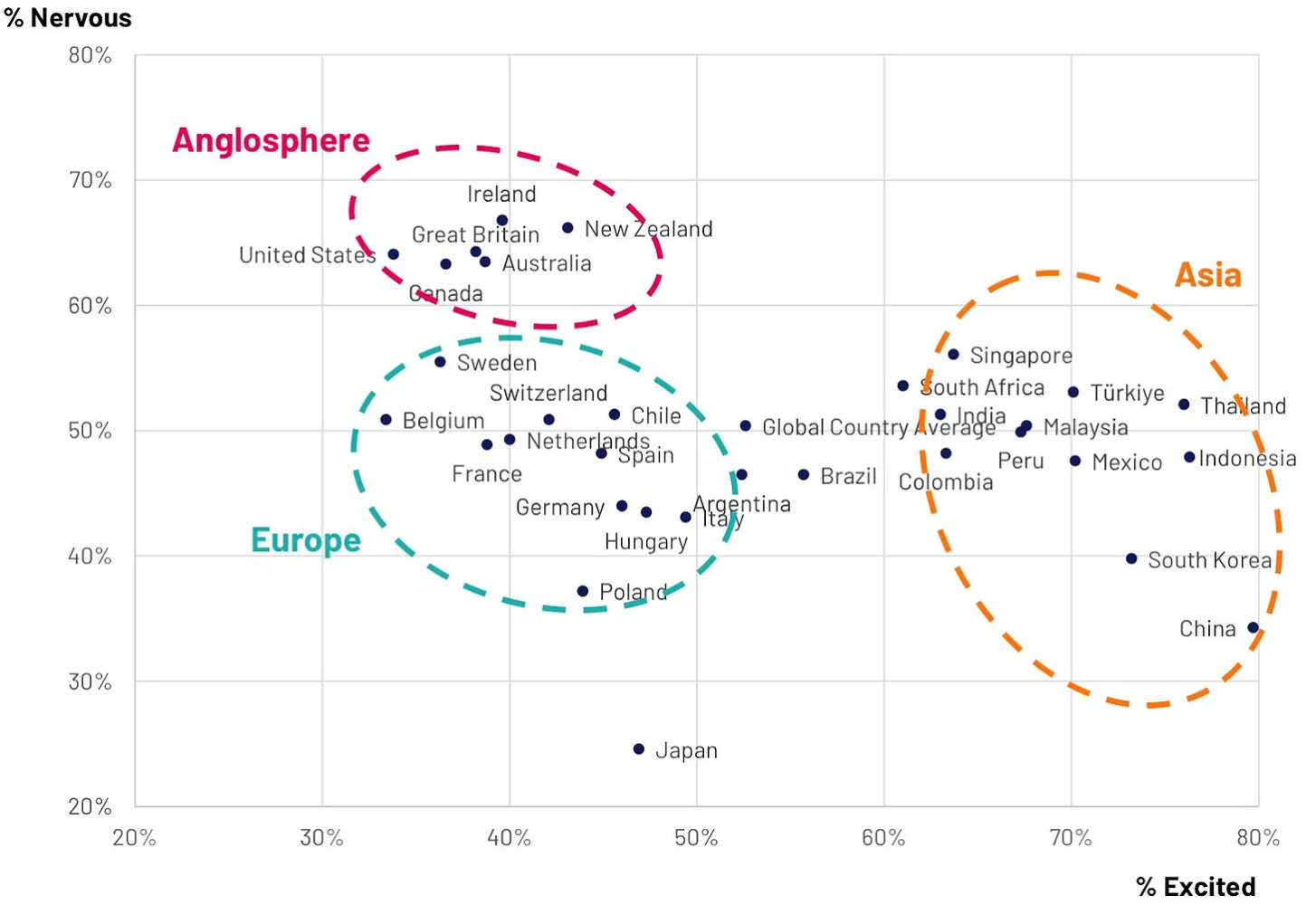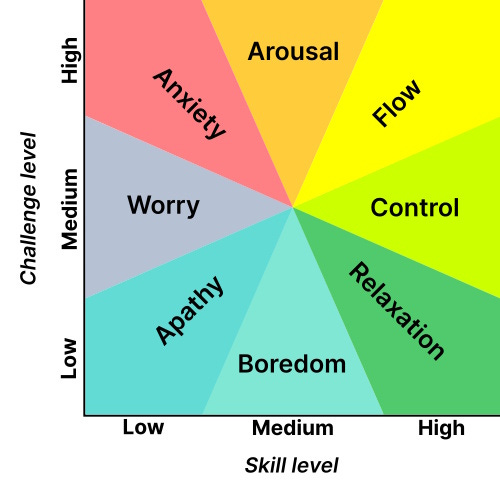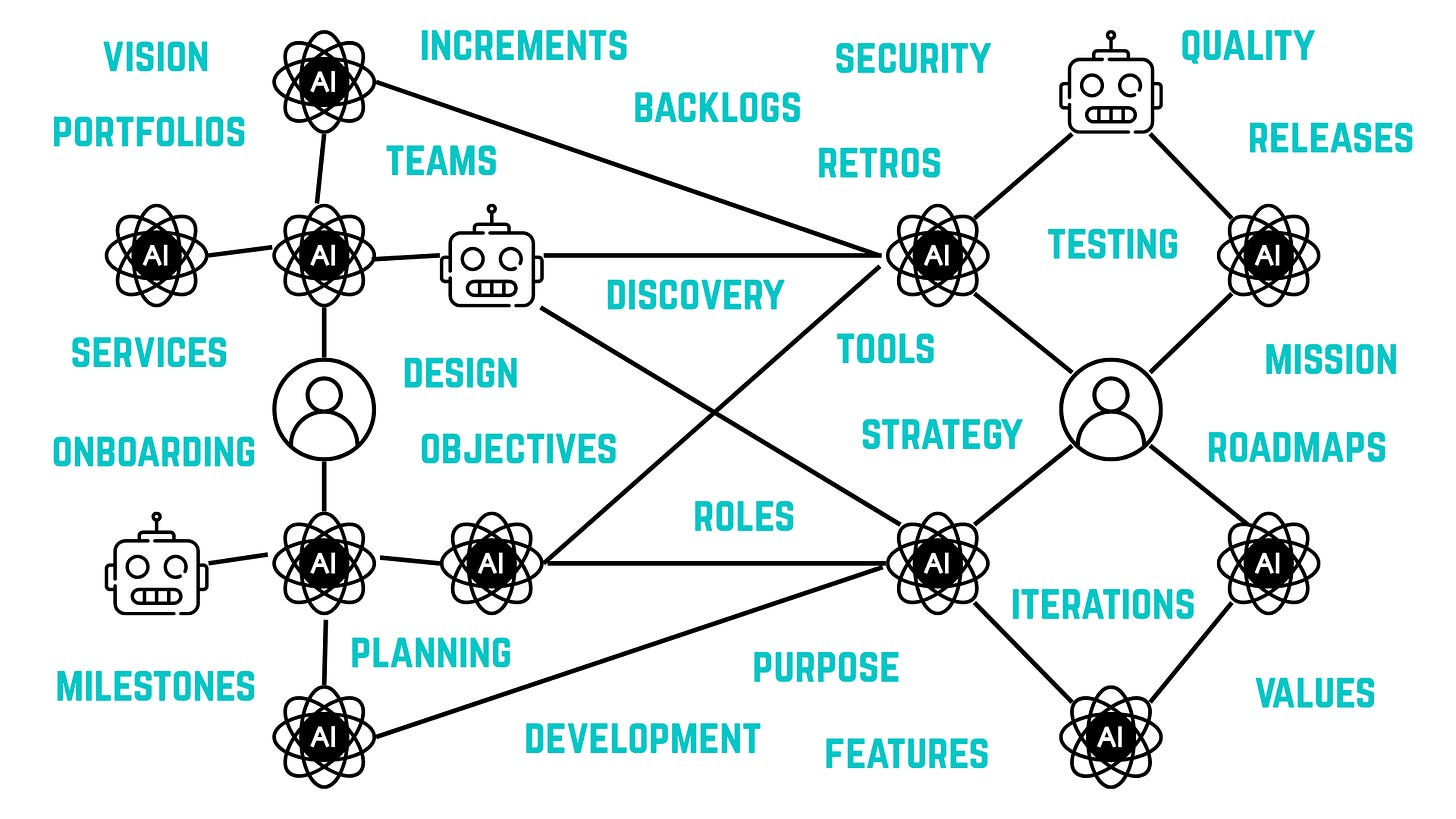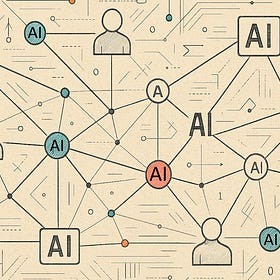Your New Role Is Collaborative Intelligence Architect and Orchestrator (CIAO)
Between Business Engineer and Chief AI Officer: Defining the Next Stage of Teamwork for Networked Organizations in the Future of Work
Between Business Engineer and Chief AI Officer: Defining the Next Stage of Teamwork for Networked Organizations in the Future of Work
Welcome to my explorations at the intersection of AI leadership, algorithmic management, and the future of work. In this age of AI, I focus on how networked and decentralized organizations can thrive with agentic AI, gig work models, and new approaches to AI management. If you're curious about the evolution of networked organization structures and the role of gig workers in tomorrow’s economy, you’re in the right place.
Agile coaches are in pain because the demand for Lean and Agile has dropped like the streaming stats of a disgraced pop star.
Software developers are in pain because vibecoding tools spew out a tsunami of code a thousand times faster than they can possibly debug.
Middle managers are hurting because top executives have realized algorithms can supervise more humans without ever expecting a promotion.
Creatives suffer because what's the point of carefully handcrafting texts, images, or videos when consumers happily consume AI-generated junk?
Interns and junior employees ache as LLMs effortlessly outperform them—faster, cheaper, better, and without the Gen Z drama.
Even product managers feel lost, wondering what exactly products will be good for when AI agents will offer identical services.
Are You Anxious or Excited?
According to an IPSOS survey last year, many people in Asia report feeling hopeful and excited about the potential of AI, while few in Europe and the Anglosphere share that enthusiasm. In my part of the world, trepidation and anxiety seem to dominate the conversations. Both perspectives have valid points, of course. The Fourth Industrial Revolution creates at least as many challenges as it solves.
The visual comparison of anxiety versus excitement reminded me of Mihaly Csikszentmihalyi's flow model, which illustrates that the optimal state—"flow"—lies precisely between anxiety and boredom.
Yes, I realize it isn't precisely the same idea, but it resonates. For my part, I feel equally anxious and excited about the future of work, and I genuinely believe our best strategy is to embrace the flow, steering our course whenever and wherever possible.
New Roles in the Future of Work
Part of the world is clearly in pain. There's no better moment than now to redefine our roles and clarify what exactly we're striving for.
Squinting a little at the future of work, our jobs begin to look suspiciously similar, regardless of job titles or descriptions. Whether you're a coach, developer, manager, or creative, your responsibility will be to both guide and be guided by a network of AI agents surrounding and overwhelming you, like partygoers in Amsterdam on King’s Day. The future is equally terrifying and exhilarating. And, just as in Amsterdam on April 27, it's wiser to join the flow rather than resist—escaping the crowd isn't an option.
To explore what future roles might look like, I prompted Gemini:
"I want to know what is the next phase after agile coach, middle manager, and product manager because these roles seem to be struggling in the age of AI and the future of work. Teams will increasingly consist of a combination of humans, robots, and AI agents, but the system of work still needs to be designed, developed, and orchestrated. What is the best role name for that? Some suggest "Business Engineer," nicely combining business with engineering. Is that the best term, or are other role names emerging? What's the ideal choice for the future of work?"
After ten minutes of exhaustive research, Gemini produced a 14,000-word document (attached below) that was as comprehensive as it was overwhelming. Skimming impatiently to the conclusion, I found exactly what I was hoping for:
"The emergence of hybrid work systems, where humans, AI agents, and robots operate as interconnected teams, necessitates a new pivotal role: the orchestrator. This report advocates for establishing a Collaborative Intelligence Architect & Orchestrator (CIAO), or a role with a similarly encompassing title and mandate. This individual or function is essential for designing novel work systems, ensuring seamless and ethical integration of diverse agents, and dynamically managing collaborative performance. The CIAO acts as a "System Balancer" and a "Polymathic Leader," blending technical, business, human-centric, and ethical expertise."
CIAO!
I like it.
Admittedly, I doubt Collaborative Intelligence Architect and Orchestrator is catchy enough to go viral. I can't see many of you eagerly expressing yourselves as "CIAO" on your business cards and LinkedIn profiles. However, for articulating the vision and describing a persona for my upcoming projects, this tongue-in-cheek title works better than most.
I'm here for those who wave "ciao" to traditional career paths and outdated job titles, say "ciao" to rigid agile frameworks, and "ciao" to static organizational structures. Whether they choose to call themselves Collaborative Intelligence Architects, Business Engineers, Chief AI Officers, AI Workflow Orchestrators, Product Team Designers, or Human-AI Team Leads is irrelevant. It's the attitude that counts.
The future of work warrants equal parts anxiety and excitement. Most things will deteriorate before they improve. A few things will deteriorate dramatically before spectacularly rebounding.
I'm strapped in, ready to ride the flow, steering my future wherever possible.
What about you?
Jurgen
THIS Is What Comes After "Agile Is Dead"
In the Future of Work, Agile Agents Are the New Agile Frameworks. Think Algorithmic Management Combined with Agentic Leadership.
The future of work isn’t just hype or doom. It’s about human-robot-agent collaboration—and those who master that will thrive. I’ll be your guide and skeptical optimist in a rapidly changing world. Subscribe to my Substack and get ahead.
👇🏻 The 14,000-word Gemini deep research report on role names is here. 👇🏻


